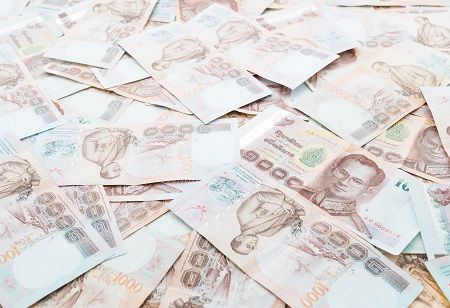
Thailand's 500 billion baht ($13.51 billion) digital wallet stimulus policy was granted cabinet approval on Tuesday by Prime Minister Srettha Thavisin, overcoming another obstacle for the ruling Pheu Thai party's flagship policy. The initiative aims to distribute 10,000 baht to 50 million Thais over six months for spending within their local communities. It seeks to revitalize Southeast Asia's second-largest economy, grappling with soaring household debt.
Officials anticipate that the program could contribute 1.2 to 1.6 percentage points to economic growth and propel the economy to expand by at least 5 percent next year.
Due to funding constraints, the handout plan was initially slated for the fourth quarter. It was delayed until solutions were found to finance it without significantly increasing public debt. Funding is expected to be sourced from the 2024 and 2025 fiscal budgets and the state-owned Bank for Agriculture and Agricultural Cooperatives.
Despite warnings from economists and former central bank governors about potential fiscal discipline breaches, the government has dismissed concerns. Critics have also questioned the legality of using state bank reserves to finance the program.
Deputy Finance Minister Julapun Amornvivat reaffirmed the plan's fourth-quarter launch and assured that legal consultations had been conducted.
Thailand's economy unexpectedly contracted by 0.6 percent in the final quarter of 2023, leading to a downward revision of the 2024 growth outlook to 2.2 percent to 3.2 percent, down from the previously projected 2.7 percent to 3.7 percent. Growth in 2023 was slower than expected, at 1.9 percent, falling short of the 2.5 percent growth in 2022.
We use cookies to ensure you get the best experience on our website. Read more...